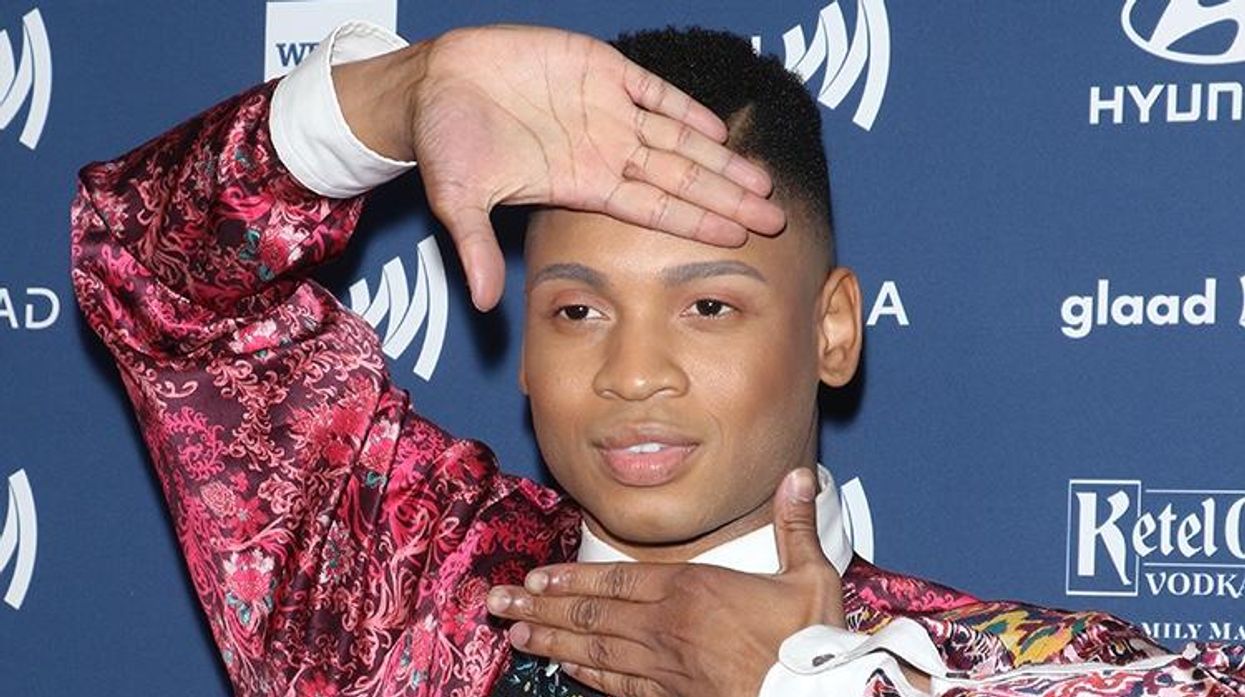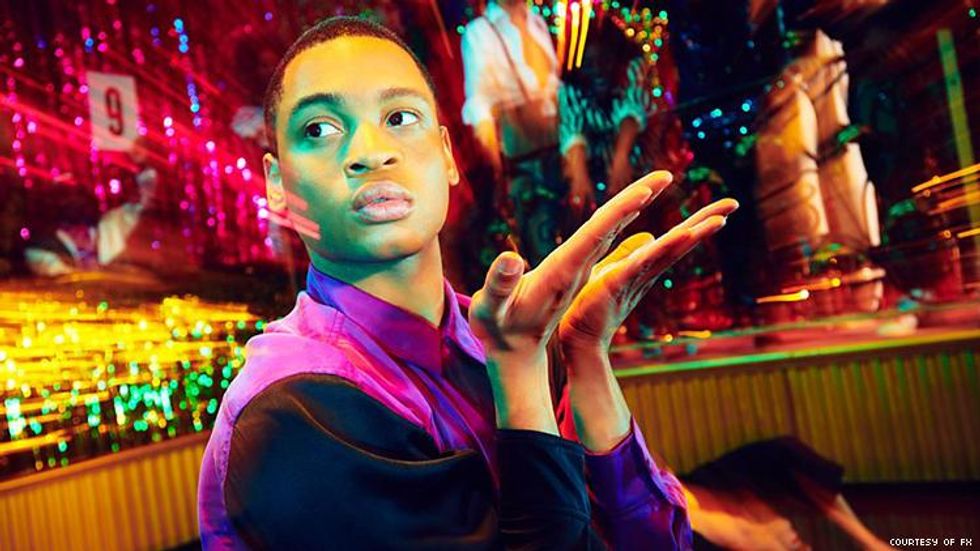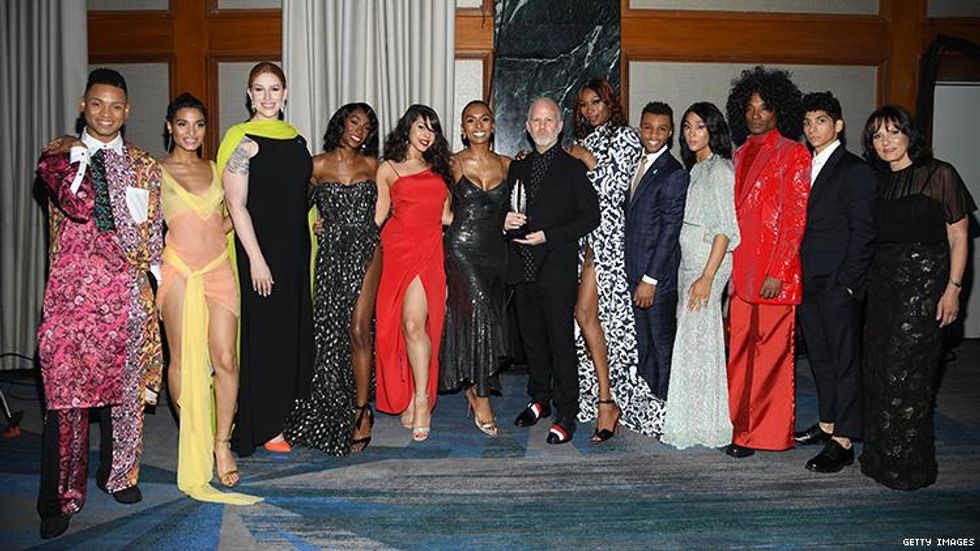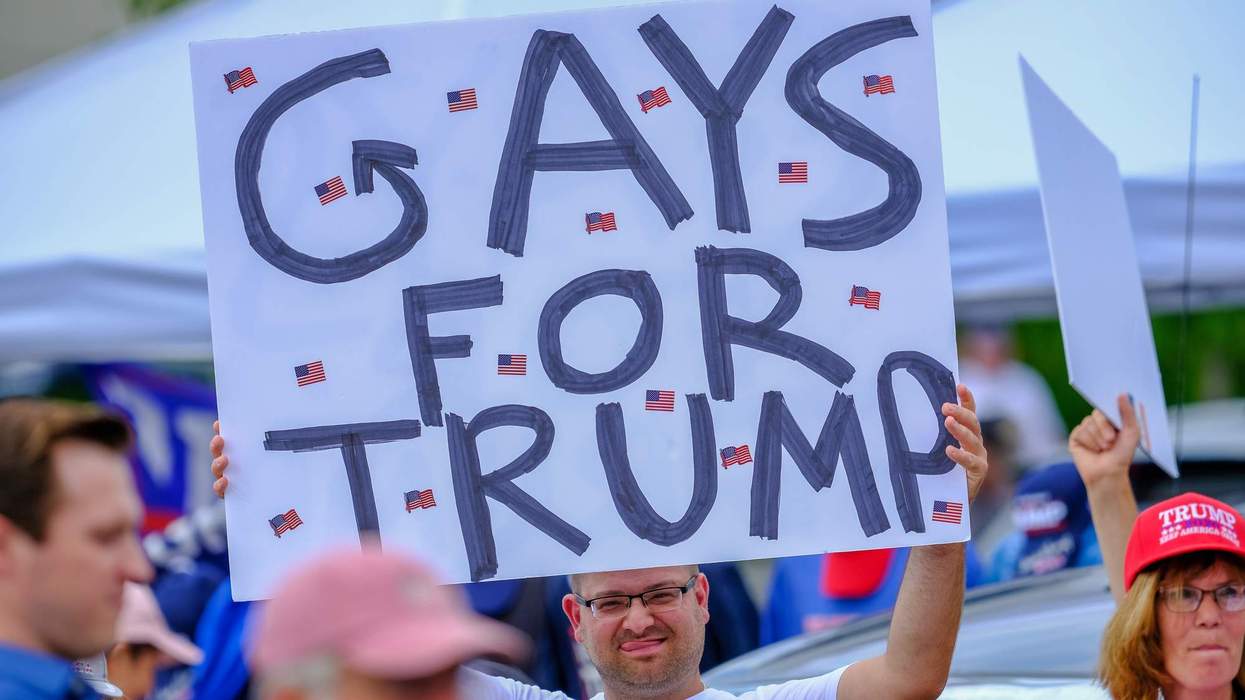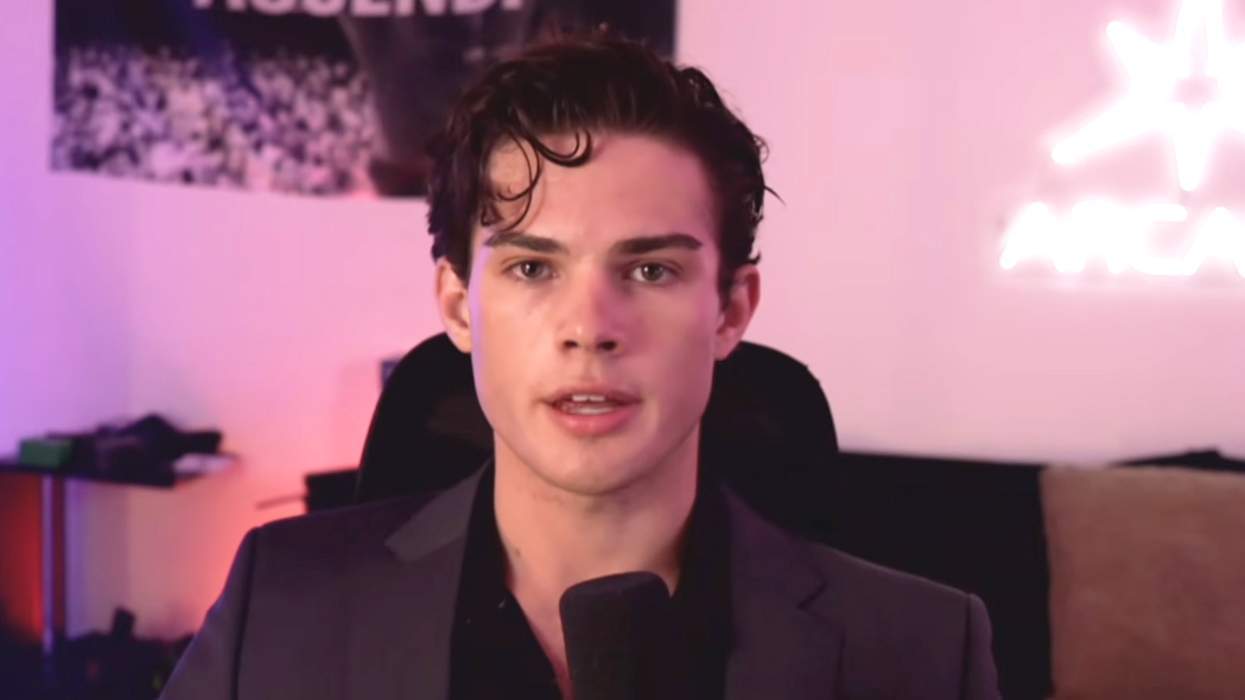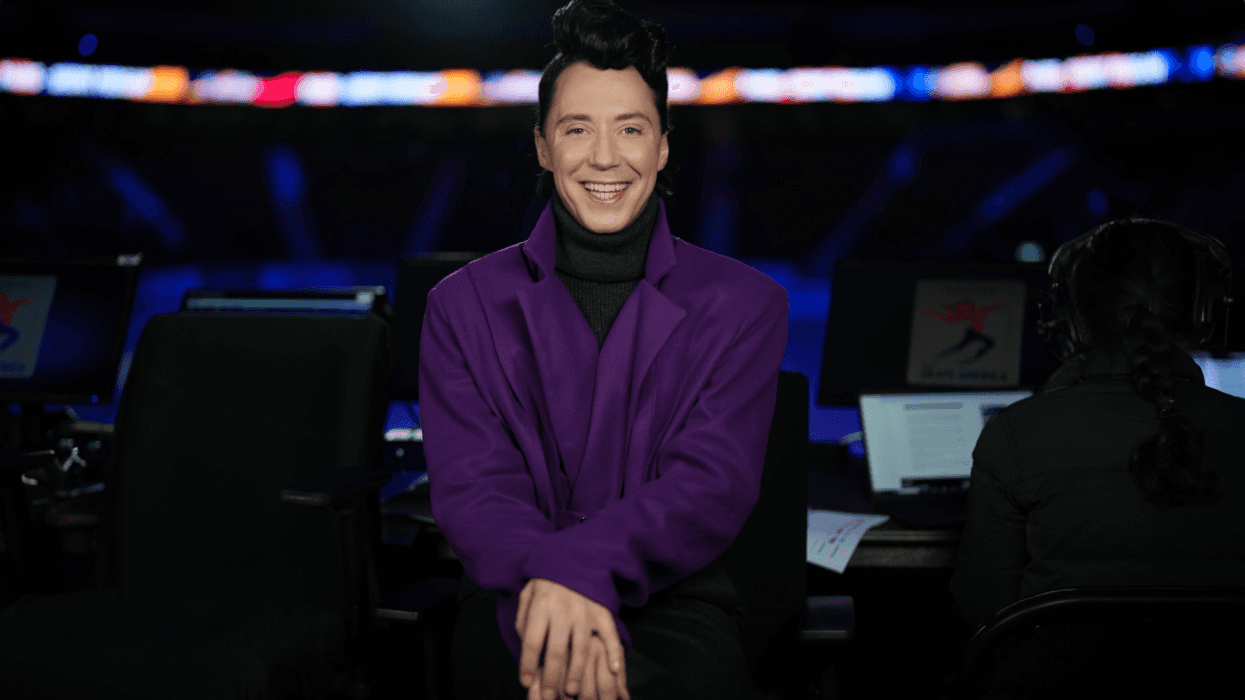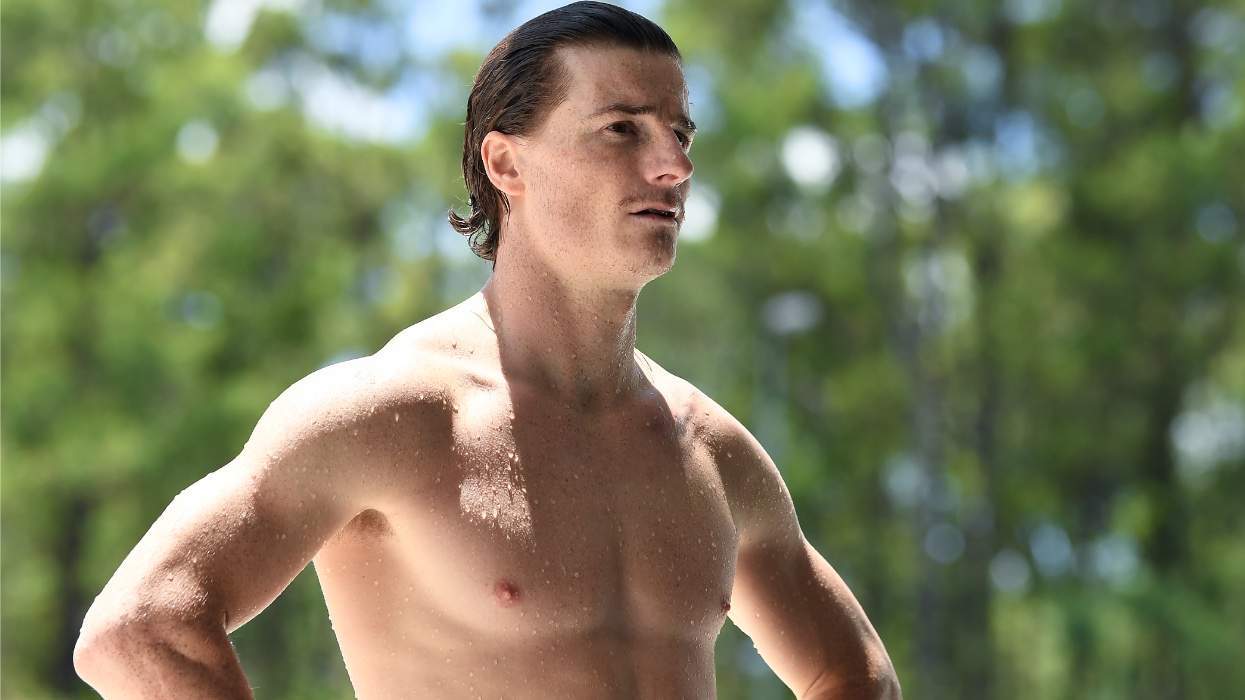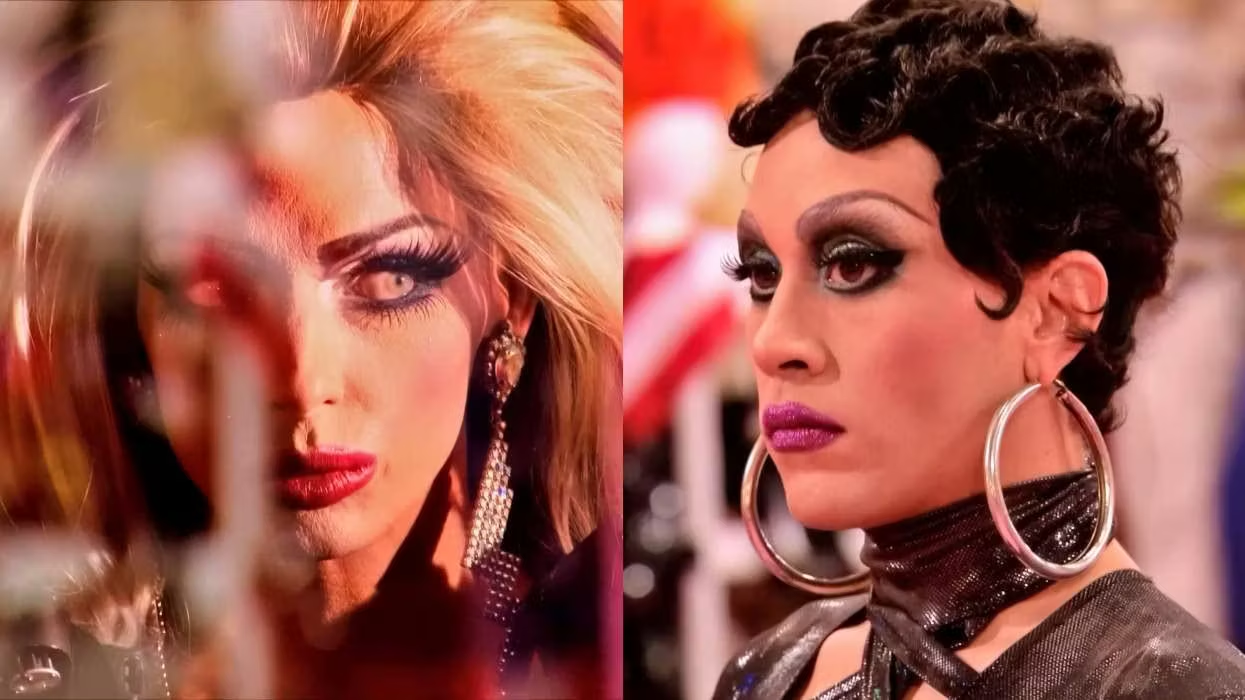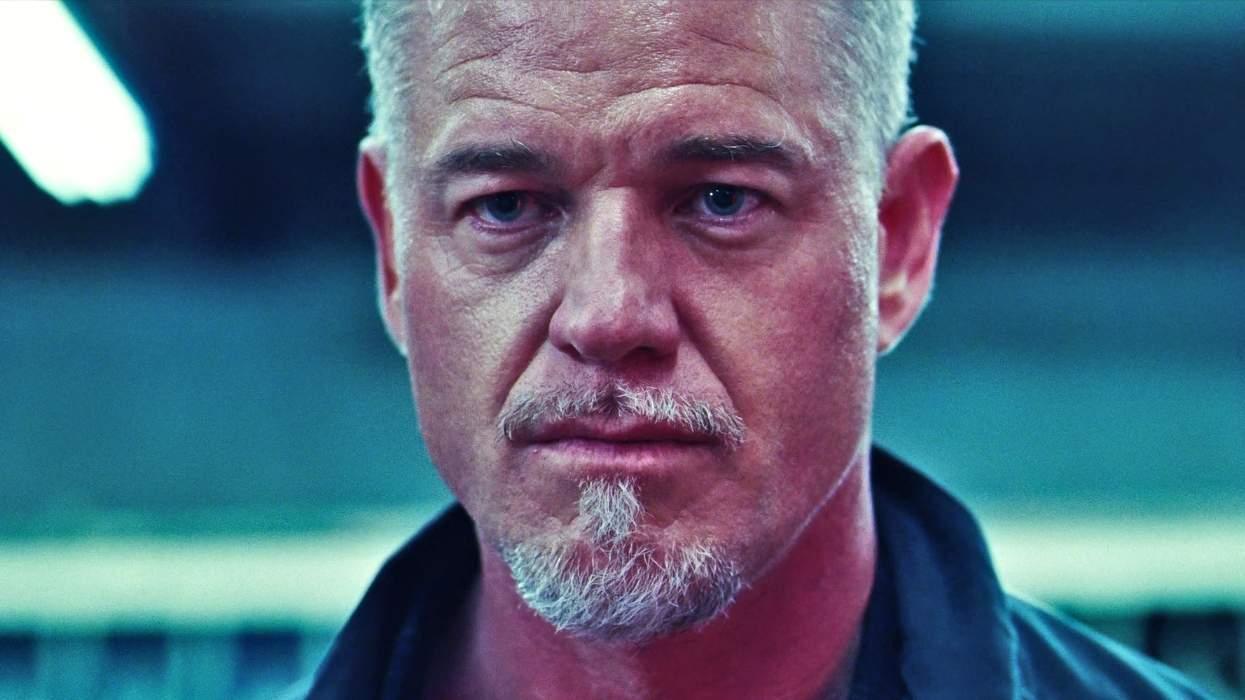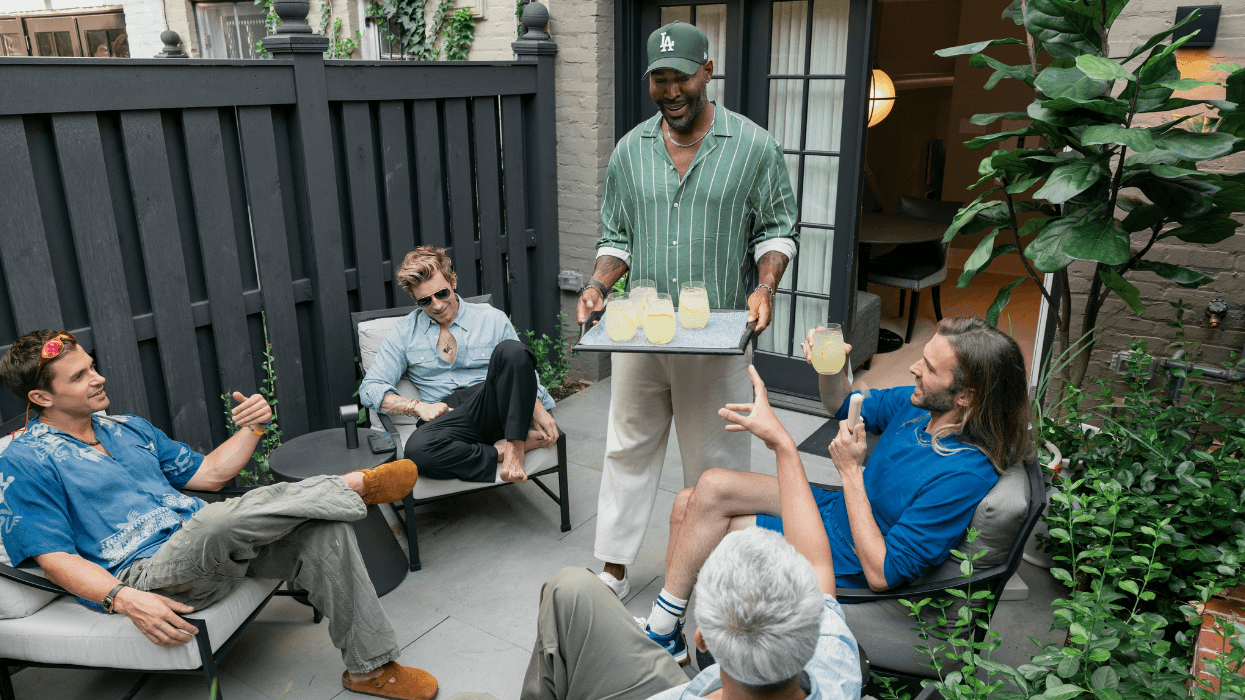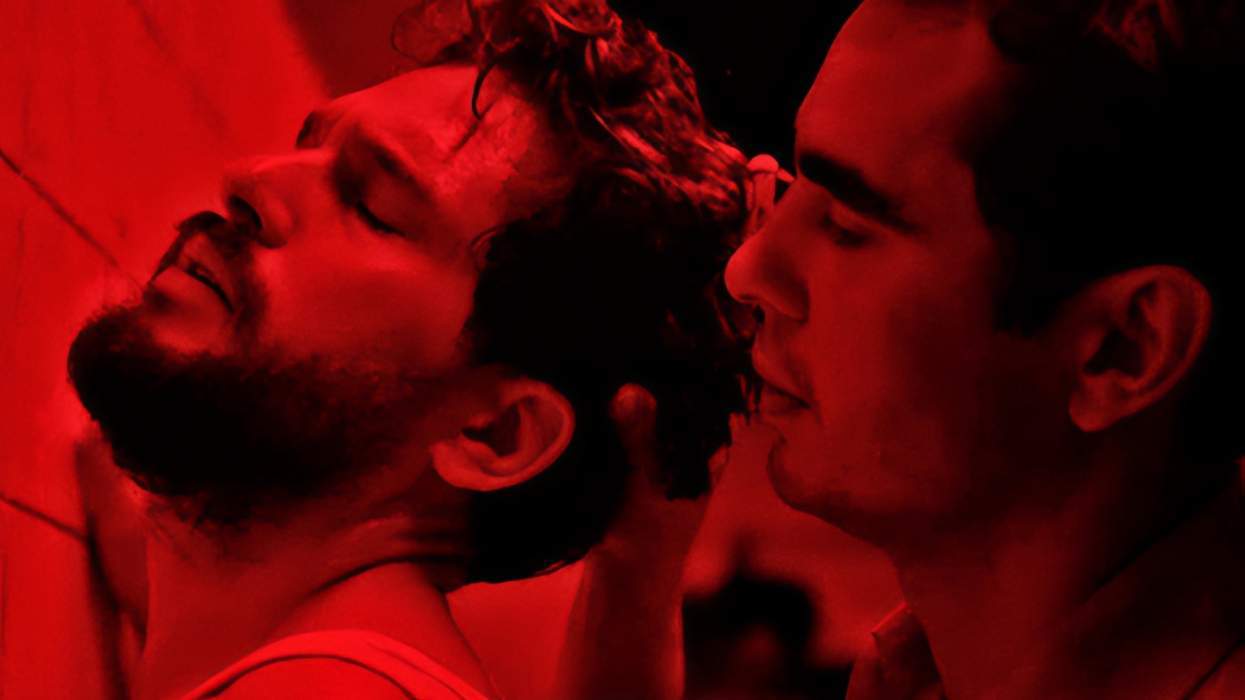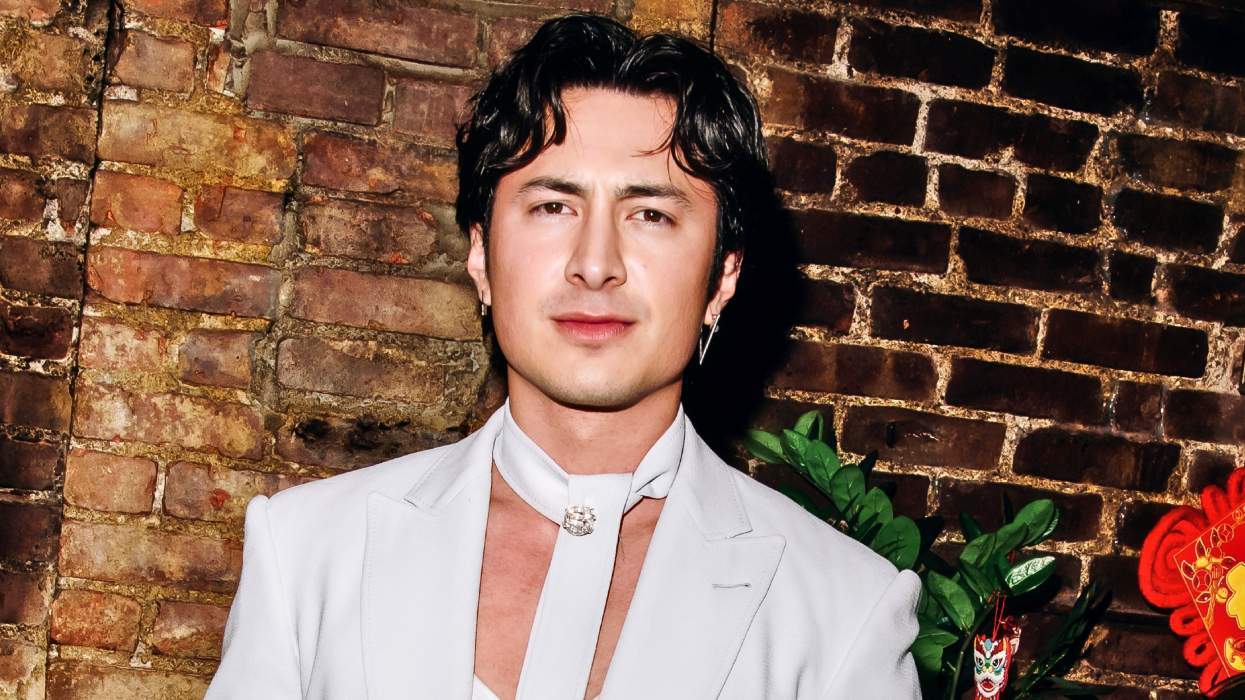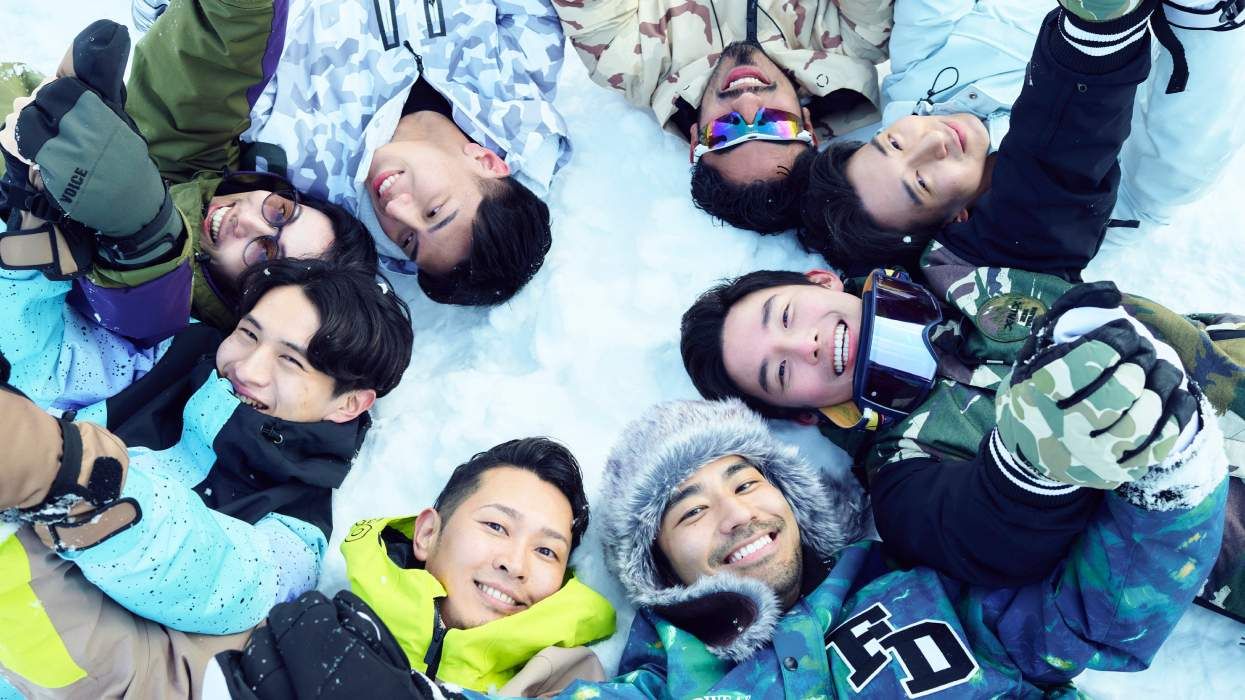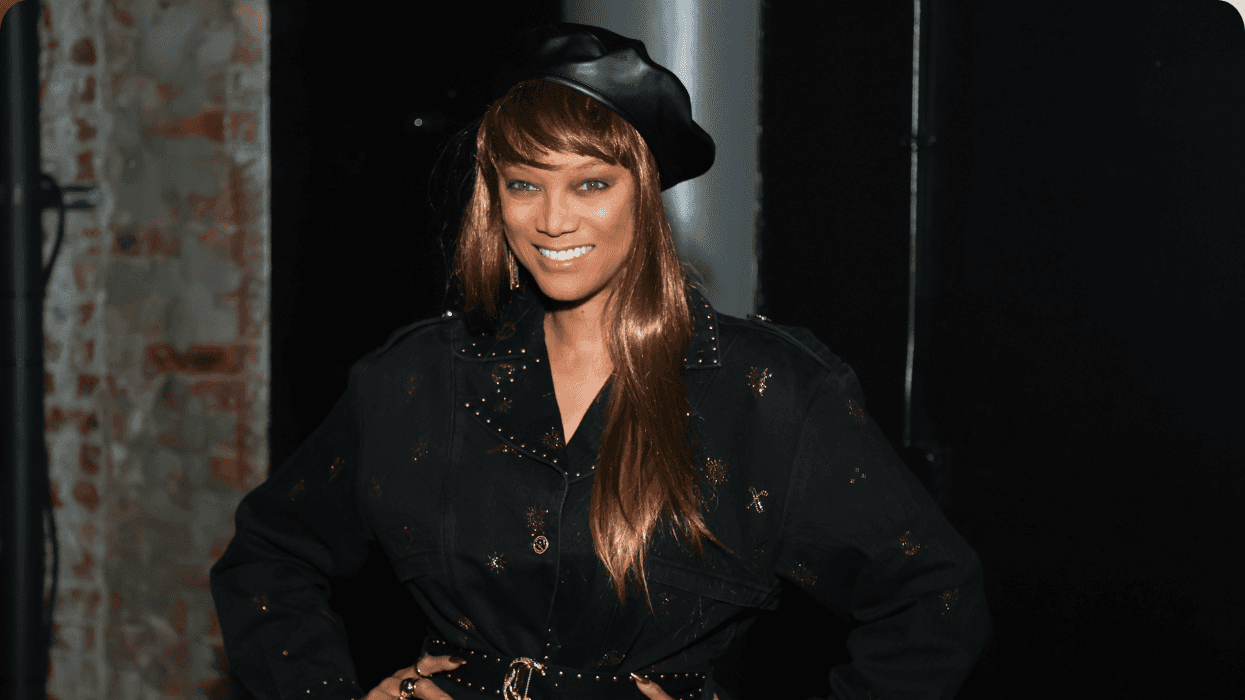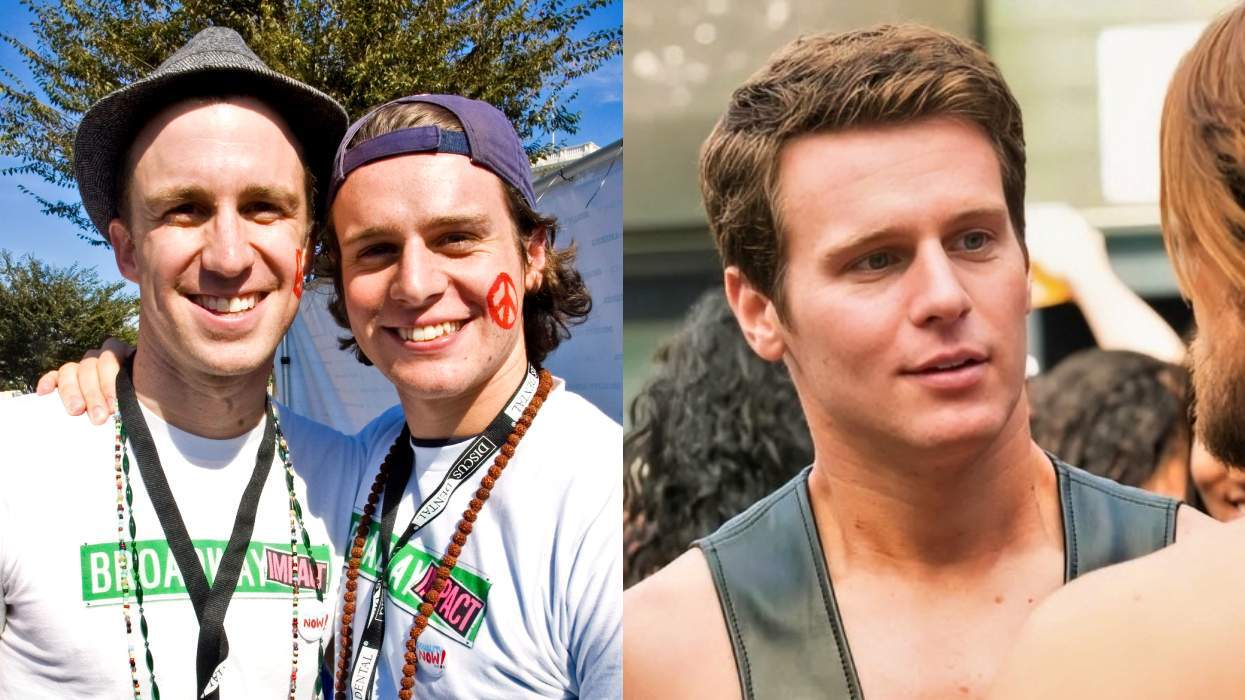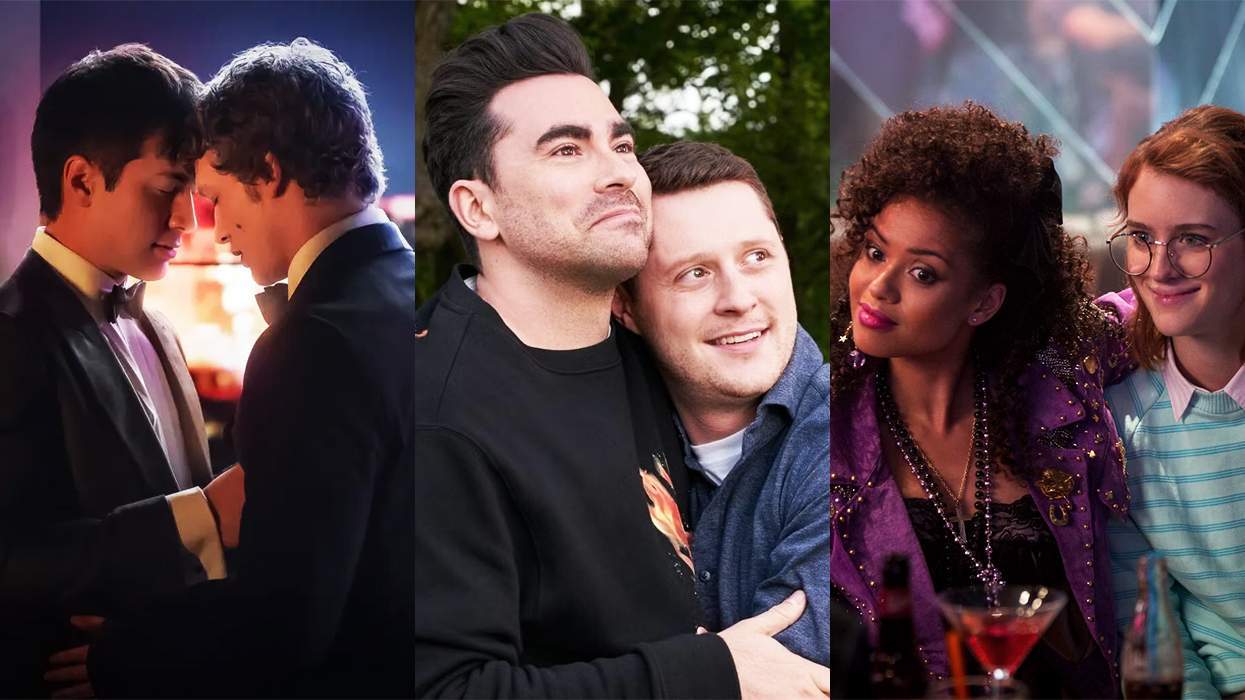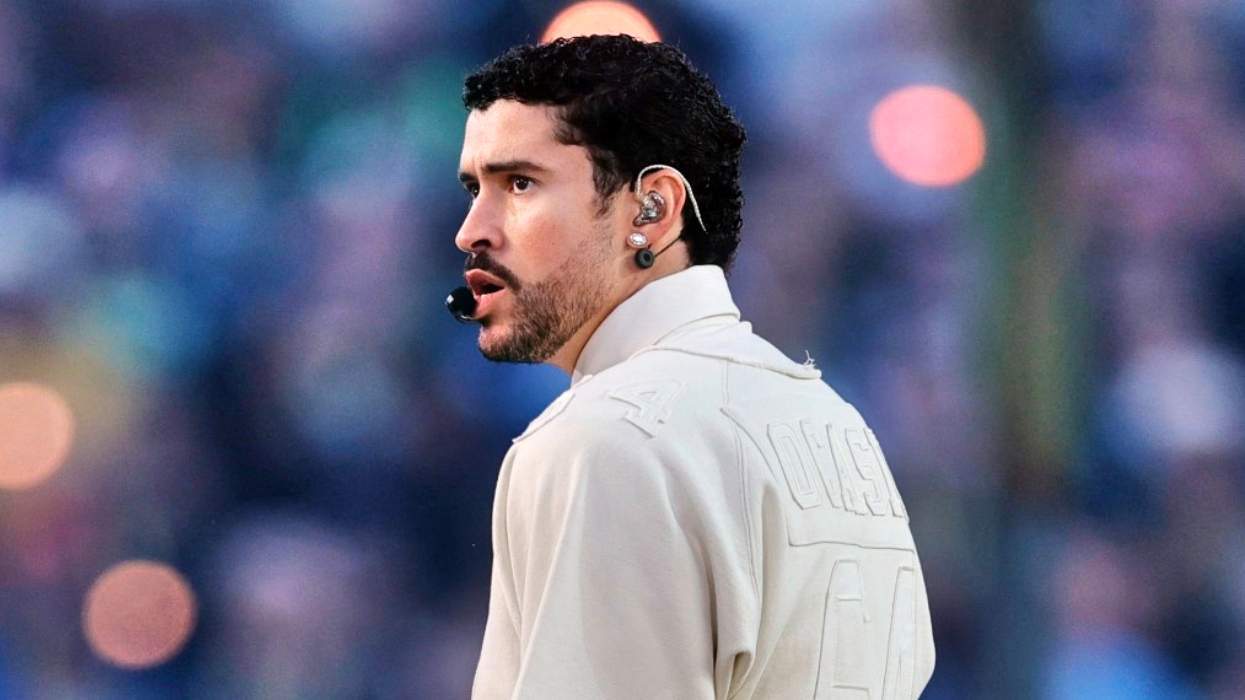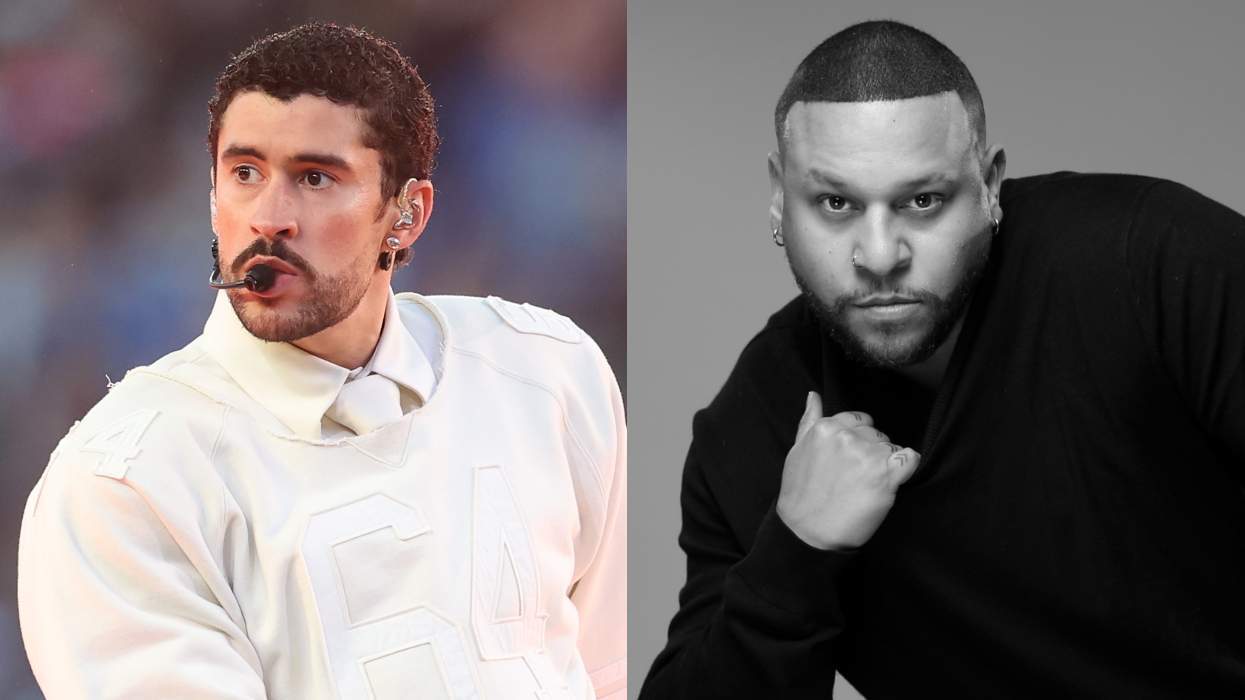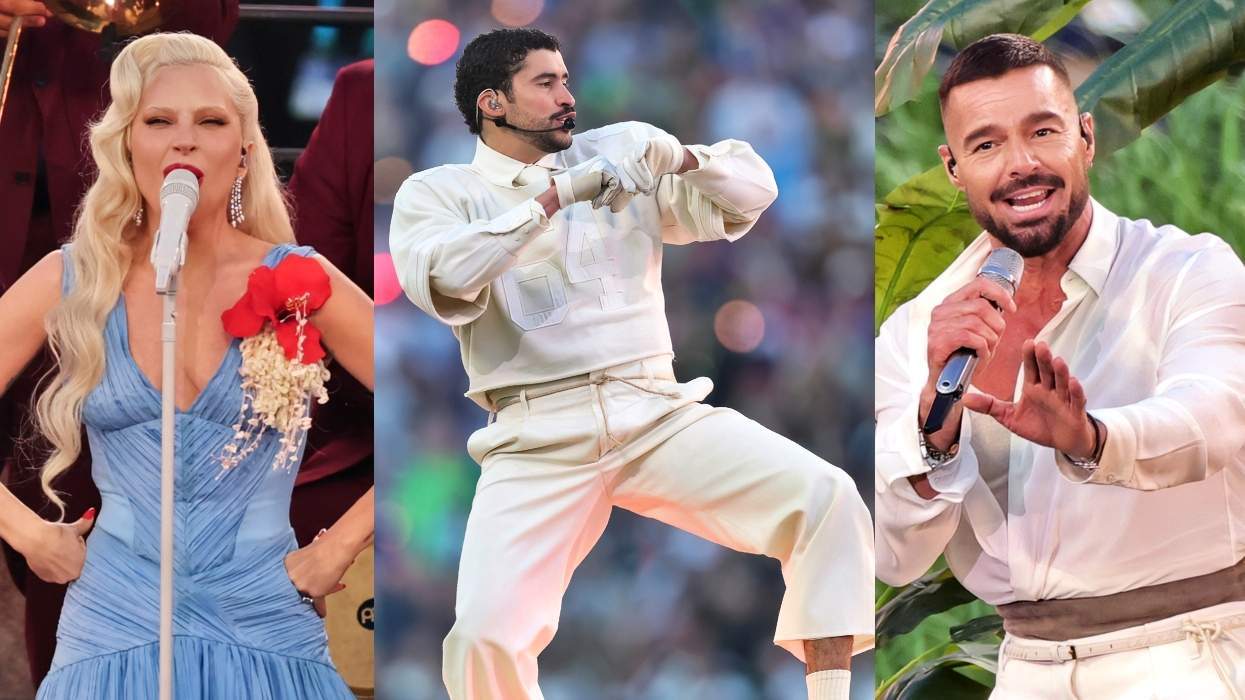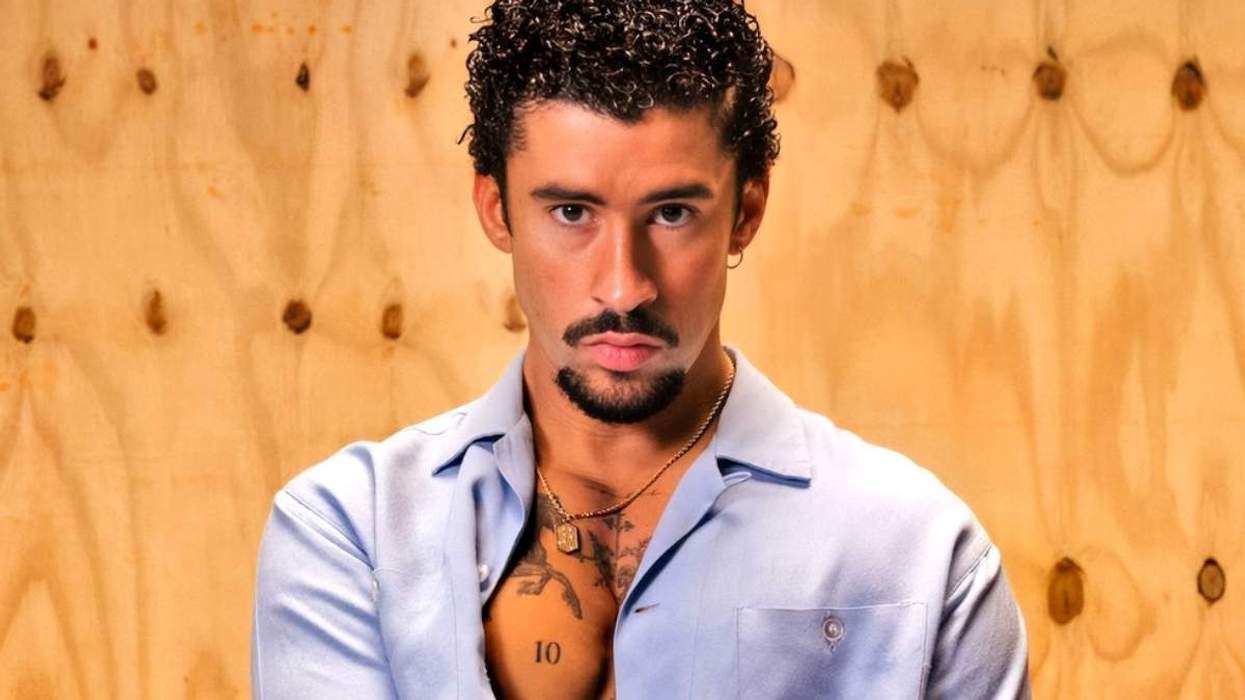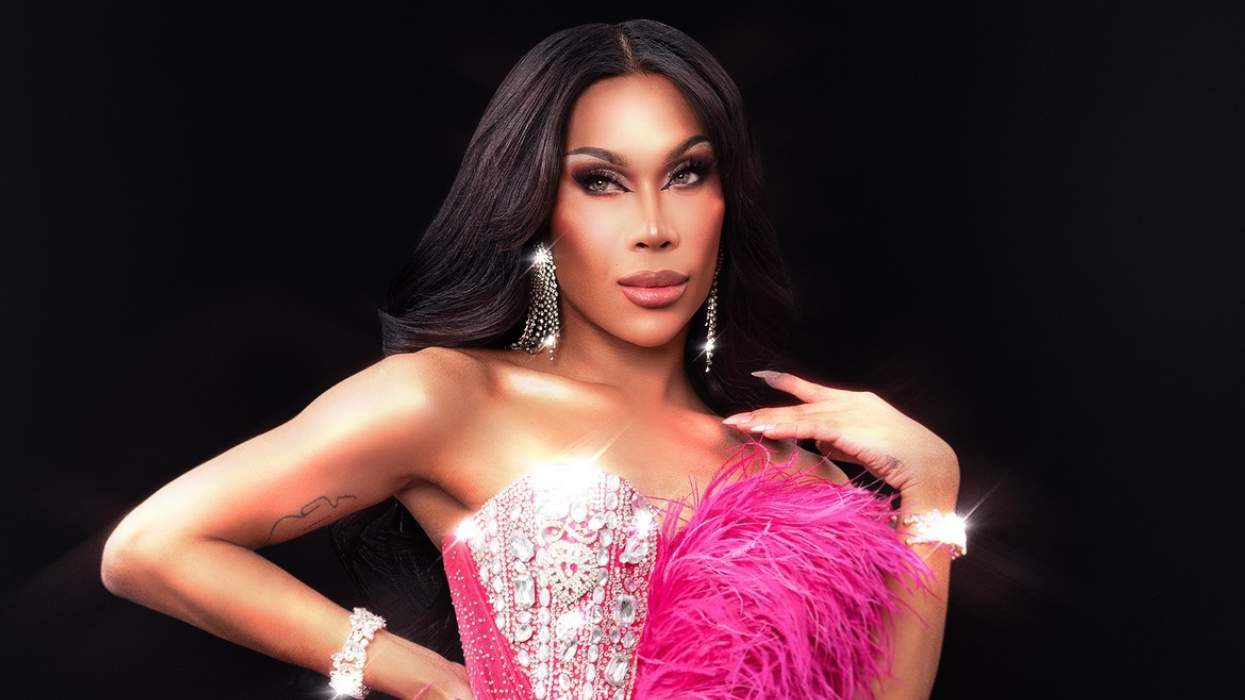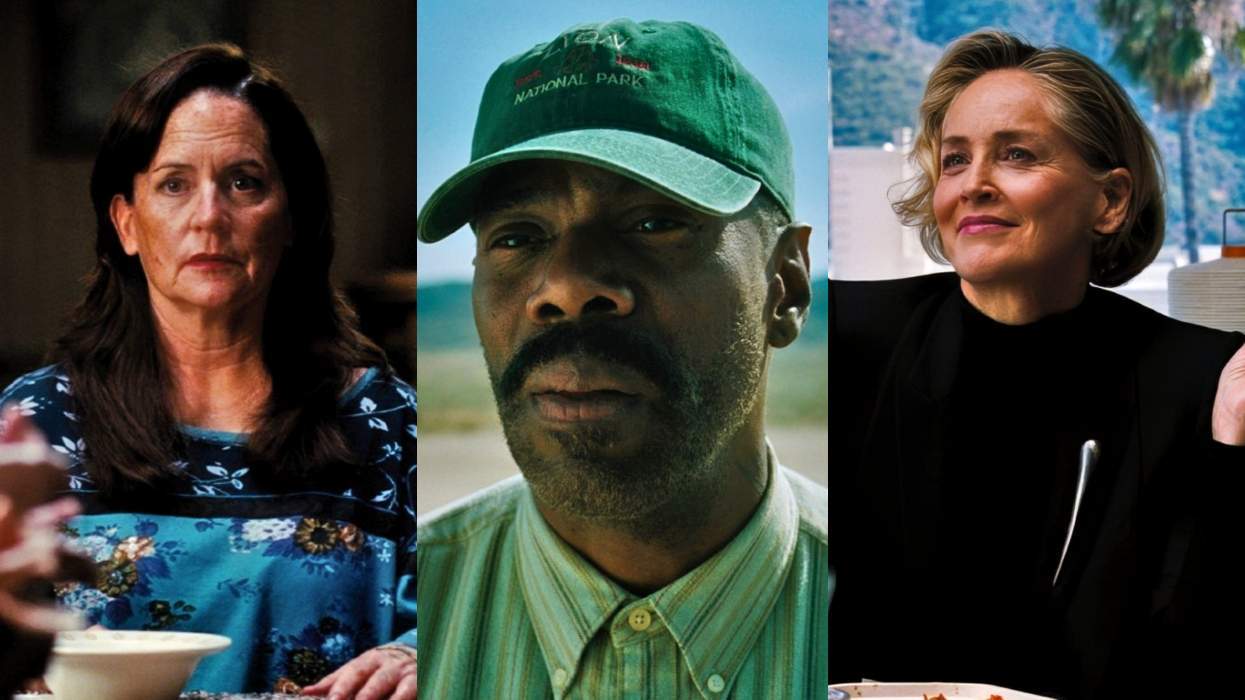All of the Black LGBTQ+ people around me haven't yet been able to shake the death by suicide of Nigel Shelby, particularly all those who were at one time Black gay boys. The same can be said for actor Ryan Jamaal Swain. As we sit down for lunch at a New York restaurant (one he used to work at when her first moved to the city) on a recent afternoon before he heads to set to film season two of Pose, the Birmingham, AL-raised actor brings up the late teen at least three different times.
"Knowing that Nigel Shelby grew up not too far from where I grew up, with a supportive mother, and that he could've potentially seen Pose, and that still wasn't enough for him to feel like he could go on and move forward to be that entertainer he wanted to be ... it breaks my heart," Swain said. Two of his recent Instagram posts are dedicated to the late teen. "And yet some people sit on their privilege as if we've gotten everything we need. Like, 'Oh Pose is happening and RuPaul's Drag Race ... We've come so far,' and yet our youth are still suffering. Until that is not the norm, I'm not done, and we're not done."
On Pose, which won a Peabody earlier this year and undoubtedly should be part of Emmy's contender conversations, Swain plays Damon, a teen kicked out of his home by homophobic parents who finds love and chosen family in New York's ballroom scene. Having delivered one of the most memorable scenes of the show thus far -- a dance number to icon Whitney Houston's "I Wanna Dance With Somebody" -- he stars opposite Mj Rodriguez, Indya Moore, Dyllon Burnside, and Billy Porter, among others.
The last year or so for Swain has been a whirlwind of sorts. In addition to being a lead on Pose, the Howard University grad starred in the final two-week run of Oscar-winner Tarell Alvin McCraney's Broadway debut of Choir Boy -- which now has four Tony nominations. And though the red carpet life has afforded him unprecedented visibility and the chance to speak to and about a number of different issues affecting some of the communities to which he belongs, he's got much more to say. So much so that by the time we sit down, he's had his publicist provide me a list of some of the things he's interested in discussing. Normally, I'd ignore it, but what it entailed was actually interesting.
Below is our conversation which begins with Swain's reflections on Choir Boy and Pose, but spans activism, his spicy Instagram posts, and his thoughts on heteronormativity in queer relationships.
Let's first discuss Choir Boy. How was that experience?
Choir Boy has been a part of my life forever. I remember being in Birmingham in high school and watching the New York Times video they had singing "Motherless Child" and I was just warped. "This feels like me. This sounds like me. This is me. Who is this Tarell Alvin McCraney?" That started the love affair with it. I ordered it -- they didn't even have it published in the States, so I had to order it from London ... Then I went to the [Broadway] opening of it and loved what they had done with it.
I came in during the two-week extension, so it was two weeks of rehearsal, two weeks of the show, and then we closed. Working with all of those guys -- there were like eight Broadway debuts in that show -- and all of us being on that horizontal plane together, it reminded me, especially going into season two [of Pose], to always humble yourself to the work ... When I don't have time to think or to put myself in a box, the amount of ownership and the amount of freedom, creative freedom, and spiritual freedom that I have is unparalleled.
How does it feel to have basically your first two major swings be received in these super positive ways? Your last year and a half has been crazy.
I started out as a theater baby, but the thing that brought me into the public was being a TV star, so people don't know I studied theater. So when people meet me, they think they're going to get this Hollywood diva, this person that is very surface. One of the stage managers was like, "Ryan, I didn't know you were like a big deal." And I was like, "I don't want to bring that shit into here." Because it's about the work. Yes, I'm accomplishing a lot, but it's about the work. But with Choir Boy and Pose, a lot is happening and it just seems like the norm now.
That's a good norm to have.
What it has allowed me to realize, because nothing has been the same since, is that my normalcy has shifted to being something that is always about moving us forward and, consciously or unconsciously, those things always find me, and I find them. Because at the end of the day, the first step is to entertain. The second step is to enlighten and then the next step is ecstasy or some sort of catharsis. I feel like everything that has happened thus far, and I hope continues, has happened that way... because I love having a transformative year and not feeling like it's transformative.
They say we're in a moment of Black creative renaissance, and you're part of that younger generation of Black Hollywood. With that, whereas many Black celebrities of yesteryear were apolitical in some senses, all of y'all seem ready to march. Talk to me about what you see as your responsibility with the platform you have, because your Instagram is spicy!
Being a child of the movement -- growing up in Birmingham, my grandparents were freedom riders -- I was reared to be about the people and for the people and for us all connecting as one. Then I went to Howard where it was all about loving yourself. And being in that bubble and other spaces that are hyper Black, you can sometimes forget that they are not representative of the broader world. So, then you have to shift yourself to calibrate all of these other things you didn't have to deal with while you were loving yourself. With just this last month alone, I've seen so many LGBTQIA+ activists from all different shades connect on one topic, and then I've seen a clear divide when it's someone like Nigel Shelby passing. And I'm like, why aren't you showing up for this young man? Then there was this gay white male saying Howard University needs to move so his dogs can have a place to do their business...
What I find very finicky about this space is that some people want you to speak only on topics that align with where you are in your life, versus speaking on the whole thing. I've been taught to be on the front lines of social change and make sure that I'm fighting for love regardless, understanding that our superpowers are in our difference. But also understanding that we have to call out when we've fallen short and investigate that so we don't make the same mistakes over and over.
Like, I didn't know Marsha P. Johnson and Sylvia Rivera were on the frontlines of the moment until I did the research for myself. Nobody was teaching me that. I've only ever seen gay white men as the frontlines of the movement and I'm like, "Where do I fit in this?" And what I love about Ryan [Murphy, Pose's executive producer] is that he's using his white gay privilege as allyship to make sure he allows people to be seen and authentically heard. That's what I'm about...
You mentioned Nigel Shelby and the fact that so many people seem unable to wrestle with the idea that Black LGBTQ+ people are experiencing historical visibility in Hollywood, but so many queer folks of color are still suffering. How do you wrestle with that, as someone in the public eye?
It's been very disheartening, and very humbling, because you realize, as a Black queer male, I'm afforded some privileges that my sisters aren't. And I've been afforded an immensely exciting opportunity to be in the rooms with some of the visible folk of this movement who are part of the community where we can have these conversations, with Indya [Moore] and Angelica [Ross] and Mj [Rodriguez] and Hailie [Sahar] and Dominique [Jackson] about how I can be a better ally and show up for them. Just educating myself on how men and women of trans experience, and gender nonbinary people, have been the people who have ushered in that extra push that we need to get this stuff together. "How can I be a better servant, of better service to you?" When we lead with that question, we bring ourselves to a space of selflessness and clarity.
I hate the social caste system of the LGBTQ community. Black and brown folk -- in any space -- we're still on the lowest rung. How? But then I understand that we give without any pretenses. We give to the movement without any type of onus on the war or trying to get anything back. And I truly believe that we are the chosen people and the chosen people have to deal with the fact that they are the most ostracized ... I ain't know hotep though. [laughs]
What type of art do you want to create? What conversations do you want to be part of starting?
I want to create art that cultivates Black joy. We have so much of the struggle, civil rights movement, slavery narratives, but when can we just have the most traumatic thing be a little Black girl or boy going through puberty? What so often happens is symbolic annihilation -- you don't see yourself represented in the narrative so you don't think you're important. Like with Eighth Grade or Hot Summer Nights, all these indie films that are just about coming of age, why couldn't that have been a Keisha or a Kiki? And how transformative that could be for a Black or brown baby to see themselves realized. I want to cultivate stories around how Black joy personifies itself within the body, spirit, and mind.
On top of education in school, entertainment is also education, so I want to have a Bayard Rustin biopic. I just want to make sure a young Ryan Jamaal Swain sees himself represented in the stacks, at these bookstores, at the theaters, in video games, on the stage. I just want instances like Giovanni Melton, Nigel Shelby, and Kawaski Trawick to cease. And ultimately, I'm trying to be on my Beyonce, cultivating things for the people, by the people.
Anything else particularly on your spirit that you'd like to share?
Stop putting heteronormative notions and conditions on homosexual relationships... First off, it doesn't work. There's so much complexity behind being of the community... and when we put those expectations on our relationships, it complicates, conflicts, and makes you dim down your whole light to fit into a box. I just feel like if you are who you are, you should be you 110% ... So, trying to do what our parents did or saying that you have to be the feminine one in the relationship and he is the masculine one -- no. We all have within us submissive and dominant traits, and when we work together to understand how we can service all of that in a relationship, we become better humans because we're not having to shut down any one part of ourselves.
That is very specific. And yet, it reminds me in a way of criticisms some trans folks lodge at the broader LGBTQ+ Rights Movement which centered on marriage equality as the prevailing issue, as opposed to other concerns.
And marriage isn't for everyone. Some people are meant to be polyamorous, and it puts this immense amount of pressure on some people to give up dreaming and living and go be kept ... I challenge what we think of as traditional and nontraditional, because it can hold you stiff. We need to operate and expand our vocabulary outside of the traditional. Tradition is for cooking and food. But everything else, because the world is ever evolving, tradition can and will change. Beyonce said it best, and I find this quote services not only rehearsal, but life in general: "Nobody wants to rehearse because nobody wants to be humbled." But the moment we stop rehearsing for life, is the moment we lose momentum in the final performance.
RELATED | The 24-Year-Old Lee Daniels Protege Changing the Future of Theater


